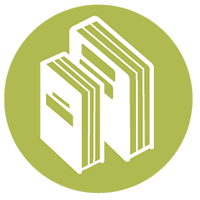Endorsed by Duke AHEAD Steering Committee, November 18, 2015 (Last updated 11/18/15)
Significance
Health professions educators recognize their responsibility for helping students develop an identity as a member of a particular professional community, including integration of the values and behaviors expected of members of that community.
The idea of formation refers to “the kind of education that leads to … what we often call character or integrity” (Walker et al, 2008, p. ix). Formation occurs over time and denotes “a way of being and acting in practice and in the world” (Benner et al, 2010, p. 166). “The fundamental goal of [health professions] education is professional formation, the hallmark of which is commitment to making things better for patients and, more broadly, the public—an aspiration to excellence across the domains of practice. This is, in our view, the essence of professionalism” (Cooke et al, 2010, p. 37).
Unlike knowledge attainment and application, skill development, program completion, role socialization or professionalism, professional identify formation focuses on who the learner becomes more than what the learner knows. Such formation is facilitated by intentional educator activities that incorporate a values-based education.
- Benner, P., Sutphen, M., Leonard, V., & Day, L. (2010). Educating nurses: A call for radical transformation
- San Francisco, CA: Jossey-Bass.
- Cooke, M., Irby, D.M., & O’Brien, B.C. (2010). Educating physicians: A call for reform of medical school and residency.
- San Francisco, CA: Jossey-Bass.
- Walker, G.E., Golde, C.M., Jones, L., Bueschel, A.C., & Hutchings, P. (2008). The formation of scholars: Rethinking doctoral education for the twenty-first century.
- San Francisco, CA: Jossey-Bass.
Specific Behaviors that Demonstrate an Ability and Commitment to Facilitating Learners' Identity Formation
-
Create learning environments that enhance learners’ reflection on and internalization of their personal values and those of their profession
-
Engage in effective advisement and counseling strategies that assist learners to engage in thoughtful and constructive self- and peer evaluation and meet their professional goals
-
Model behaviors that reflect professional values and a lifelong commitment to personal and professional growth
-
Respect all learners and value the contributions each makes to the teaching/learning environment
-
Demonstrate sensitivity and responsiveness to the diversity and individuality of each learner
-
Create an atmosphere that facilitates dialogue about personal/professional values and how they affect implementation of one’s professional role


